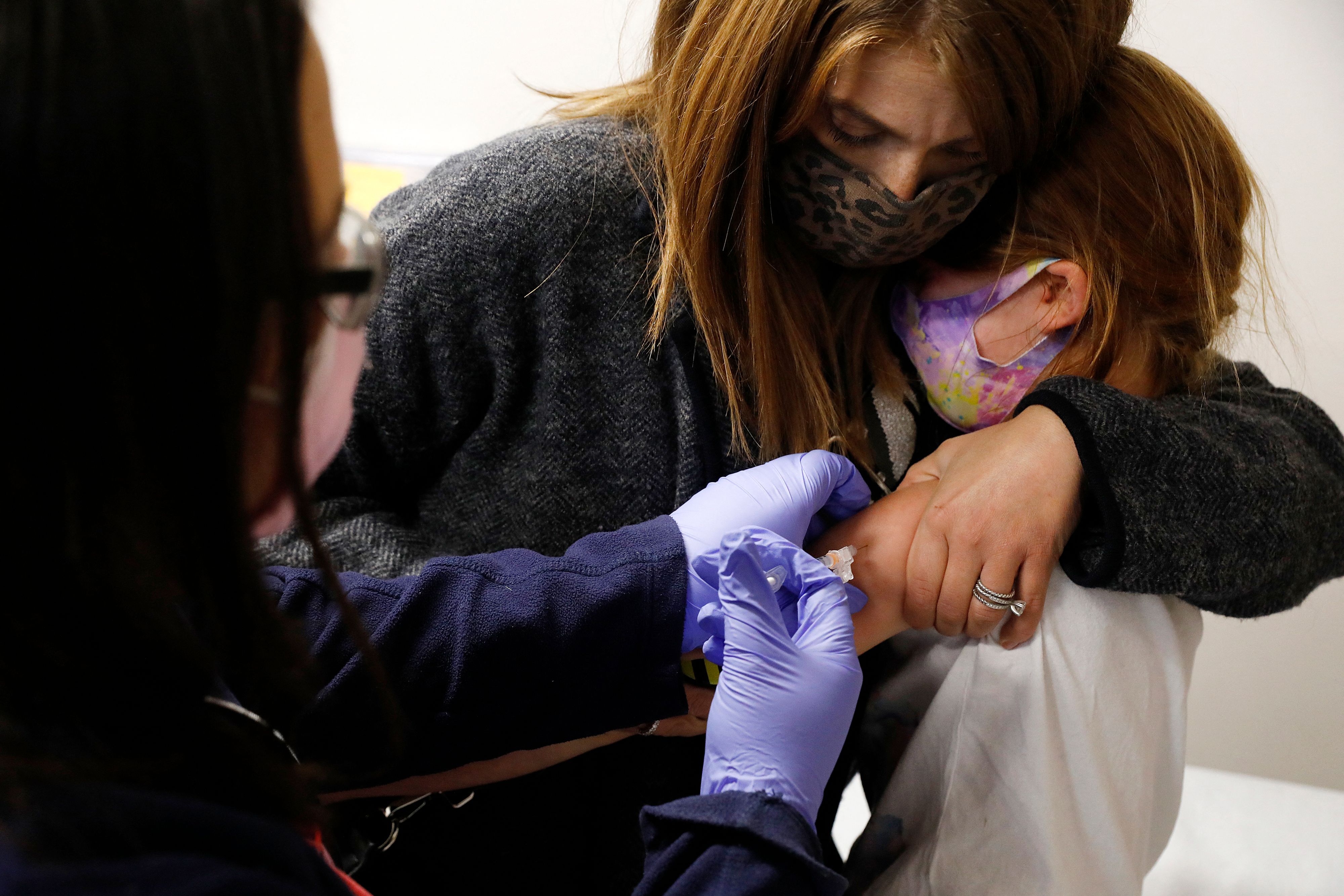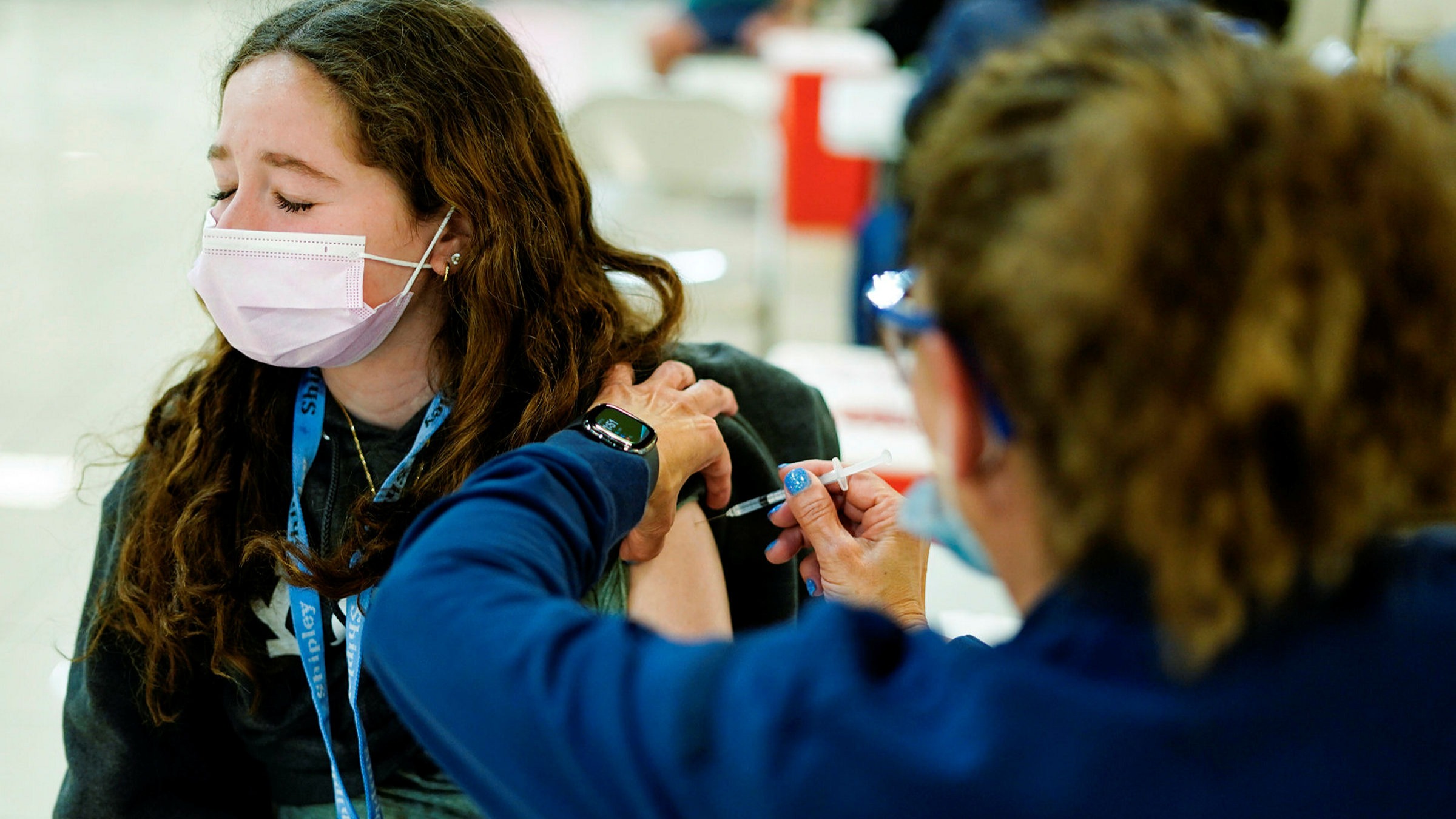Two doses of the Pfizer vaccine appeared to offer virtually no defense against moderate illness caused by the omicron variant five months after immunization, as measured by visits to emergency departments and urgent care clinics, according to data published Tuesday by the CDC.
Booster shots, on the other hand, significantly increased protection, lending support to the agency’s recommendation of booster shots for everyone 12 and older.
Several studies have found that, while vaccine efficacy against infection declines over time, the immune response remains highly protective against hospitalization and death, even against the highly contagious omicron variant.
A separate analysis of data from 29 jurisdictions published on the CDC’s website found nine COVID-19-related deaths among vaccinated children and adolescents aged 5 to 17 between early April 2021 and January 2022, compared to 121 deaths among unvaccinated children of the same age.
Nonetheless, the findings suggest that scientists should carefully monitor the vaccine’s performance in children and adolescents over time, keeping in mind that boosters may be required.
“We need to see more of these studies to see if this is consistent,” said Deepta Bhattacharya, a University of Arizona immunologist. “But I think it’s likely, and as parents, we should be prepared that it’ll take another shot.”
The findings are especially important for parents as school districts across the country consider eliminating mask mandates. The Centers for Disease Control and Prevention (CDC) issued new guidance last week indicating that roughly 70% of Americans can safely remove their masks in public indoor spaces.
Vaccination uptake among young children has been slow; less than one in every four children aged 5 to 11 is now fully vaccinated. More than half of adolescents aged 12 to 17 have received two shots and about 12% have received a third booster dose.

The findings follow the publication on Monday of data showing that two doses of the omicron variant provided little protection against infection in children aged 5 to 11 after only one month. Even in adults, the vaccine has been shown to provide diminishing protection against infection, particularly against the omicron variant. This trend is reflected in new data published by the CDC on its website.
The researchers examined data from 39,217 visits to emergency departments and urgent care clinics, as well as 1,699 hospitalizations, among children aged 5 to 17 in ten states from April 9, 2021, to January 29, 2022.
The vaccine’s ability to prevent moderate illness in children aged 5 to 11 fell to 46% about two months after full vaccination (two weeks after the second shot). The majority of emergency room and urgent care clinic visits occurred during the omicron surge when older children and adults were also more vulnerable than earlier in the pandemic.
The effectiveness of vaccination is measured by comparing protection in vaccinated and unvaccinated groups of people. However, as more people gain immunity through infection, it becomes more difficult to determine vaccine effectiveness, according to Paul Offit, director of the Vaccine Education Center at Children’s Hospital of Philadelphia and a Food and Drug Administration adviser.
“Are we comparing apples to apples when we say vaccine efficacy is declining?” he asked.
Protection against severe illness was even more difficult to define. The number of hospitalizations among younger children was insufficient to draw firm conclusions. The effectiveness against severe illness remained high, at 70% or higher, among adolescents who had been vaccinated more than 150 days before.

However, because the majority of those hospitalizations occurred during the delta era, the data does not provide insight into the effectiveness against hospitalization as the omicron variant arrived and spread.
Booster shots are recommended for Americans aged 12 and up, according to the Centers for Disease Control and Prevention. Pfizer and BioNTech are investigating the efficacy of the third dose in younger children.









































